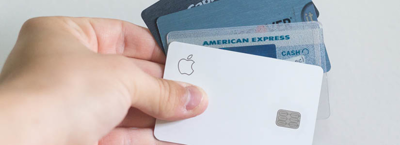
If you have loans and credit cards and you’re struggling with repayments, debt consolidation could be the right solution for you.
Any debt that can be paid off early can be consolidated, helping you to manage your debt problems and find peace of mind.
Bringing all your debts together into one loan could be the right solution for you, depending on the type of debt you have. This article looks at how debt consolidation works and whether it’s the right way for you to take control of your debt.
What is debt consolidation?
Debt consolidation lets you combine different debts like personal loans, overdrafts and credit and store card bills and then take out one single loan to cover them all. Your new loan will be at a lower rate of interest and you’ll only need to make one repayment per month rather than juggling lots of different bills.
Debt consolidation isn’t for everyone. You’ll need to be able to keep up with the repayments which may be higher than you’re used to, and charges and fees can wipe out any savings.
Read on to find out how debt consolidation loans work and whether it’s the right choice for you.
How do debt consolidation loans work?
Debt consolidation loans work by refinancing all your existing credit with one single loan. It can be easier to keep track of one monthly payment and can help to boost your credit score when you make the repayments in full and on time.
Two types of debt consolidation loans:
Secured loans use your assets like your car or home as security for the loan. That means that if you can’t make the repayments your car or home could be at risk. If you have a poor credit history or you owe a lot of money then you’ll probably be offered a secured loan.
Unsecured loans are personal loans that aren’t linked to your home or other assets. Before you take out a personal loan check that you can use it for debt consolidation as some loans are only for specific purposes.
You may also be able to use the equity in your home to consolidate your debts. Before you consider any type of debt consolidation, talk to an expert about your options.
How to consolidate your loans
If you think that consolidating your loans is the right way to manage your debt, then you’ll need to take the following steps:
Before you take out a debt consolidation loan, cut up all your credit cards and cancel them in writing so you’re not tempted to multiply your credit.
Start by working out how much you owe and how much you’ll need to borrow. Check the balance for each loan and the charges and interest that you pay to get an accurate figure.
Try and find an unsecured loan for the amount you want to borrow - this can be difficult if your debts are over £25,000.
Decide the length of time you want to make repayments. Be realistic but try and keep the length of time as short as possible so you don’t run into more problems.
Look for the cheapest interest rate based on how much you want to borrow and for how long. Look at the APR as well as the headline interest rate to get the best loan.
Read the small print carefully for details of any additional charges or early repayment fees.
Shop around to get the best deal and always ask for debt advice before you make a final decision. Remember, there could be better ways for you to manage your debts.
Is debt consolidation right for you?
A debt consolidation loan makes sense if you can keep up the repayments and you use the opportunity to get your spending back on track. If your repayments will be less than you currently pay then a single loan could be the right route to going debt-free.
It’s worth asking yourself what would happen if you lost your job or there was a sudden interest rate rise - would you be able to keep making the repayments? A consolidation loan can mean it takes longer to pay off your debts and you could end up paying more.
If you’re using credit cards to pay household bills then there may be better debt management solutions available. If you have smaller debts then you might be better off looking for a 0% credit card deal.
Does consolidating your loans affect your credit score?
A debt consolidation loan can be a great way to build your credit score by making regular repayments. It’s possible that applying for the loan in the first place can cause a dip in your credit rating but that’s only temporary until you start the repayments.
However, if you do miss any repayments then it will negatively affect your credit score. That’s why it’s worth working out the total cost of the loan and whether you really can afford it.
If you already have a poor credit history before you apply then it’s likely that you’ll be offered loans at a higher interest rate. You may also need to take out a loan that’s secured against your home or other assets so a loan might not be the best solution for you.
If you’re just looking for a small, affordable loan but are worried about your credit score, then Salad Money offers fair lending opportunities to NHS workers using Open Banking. This doesn’t need or affect your credit score at all.
Is it better to get a personal loan or a consolidation loan?
In reality there’s no difference between a personal loan and a consolidation loan. Both are ways to clear your debt faster and reduce the amount of interest you pay.
With a personal loan you can usually borrow between £1000 and £15,000 without having to secure the loan against your home, car or other assets. You then use the money to pay off your existing debts and make one monthly repayment instead of several.
Make sure you check with the lender that your personal loan can be used to pay off your existing debts and do your sums carefully so you don’t end up paying back more than you need to.
If you need to take out a personal loan to consolidate your debts then choose a safer alternative like Salad Money that offers fair and affordable lending for NHS workers.
Other ways to manage your loans
Debt consolidation looks great in theory, but it’s not always the best solution for your debt problems. If you’re not sure it’s right for you then there are other ways to manage your loans.
If you’re struggling with credit or store card debt then look out for 0% balance transfer credit card deals. These can save you a lot of money and help you clear the debt faster, although you will have to pay a transfer fee of around 3% which will be added to the debt. If you don’t pay off the card within the 0% balance window then you will start paying interest.
You could also look out for a card with a low lifetime APR which means you’re not under pressure to pay off the debt within a certain timeframe. Be aware that good credit card deals are reserved for people with good credit ratings.
If you own your own home then another alternative might be to remortgage. Mortgage rates are still competitively low so locking in a new mortgage deal could be a good way to repay your debts.
Bear in mind that the repayment period will be much longer than for a personal loan and that you’ll continue to pay interest during the 25 year lifespan of your mortgage.
Before you take any action to consolidate your debt always take independent financial advice. If you decide a personal loan for debt consolidation is the right choice for you then apply online with us and start taking control of your debt.
Applying for one of our new loans doesn’t impact your credit score. We use Open Banking in our initial assessment. If successful, we report your loan to the CRA’s (Credit Reference Agencies). Your credit score won’t hold you back from being eligible.



